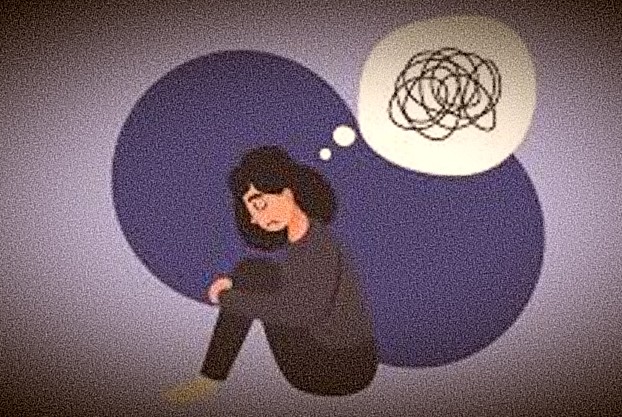In today's fast-paced world, anxiety has become an all-too-common experience for many individuals. The weight of responsibilities, societal pressures, and the relentless pursuit of success can take a toll on mental well-being. However, within the diverse landscape of India, therapy organizations are working diligently to offer support and relief through anxiety counselling. Anxiety can be a relentless companion, robbing us of our peace of mind and hindering our ability to fully enjoy life. It's a natural response in your brain to potential threats or challenges. Think of it as your brain's built-in alarm system that's meant to keep you safe. But sometimes, that alarm system gets a little overzealous and starts ringing the fire alarm at every minor inconvenience.
Everybody gets worried or concerned from time to time. Anxiety is a normal human reaction to stressful situations. However, for people suffering from anxiety disorders, such concerns and phobias continue. Their anxiety persists and, in some cases, worsens with time. Anxiety disorders may be very uncomfortable and incapacitating. They might be a factor in lost educational and employment opportunities, as well as issues with social and familial connections. Anxiety disorders can greatly impair a person's ability to perform at job, school, and in social situations.
Why do I have Anxiety?
Anxiety is a survival mechanism. It allows people to protect themselves in order to stay secure. A person may experience significant levels of anxiety on occasion, but having it on a regular basis is a red flag. In situations of severe persistent anxiety, people may feel helpless to manage their symptoms. Anxiety can also be brought on by unresolved trauma. Unresolved trauma may cause an individual to have an enhanced physiological response. When this occurs, particular situations may trigger old trauma to reemerge. Anxiety is caused by a person's biology as much as their environment. As a result, nervous conduct might be inherited, learned, or a combination of the two.
Understanding the treasure of Anxiety Therapy
Just as depression and anxiety affect different people differently, the approach needs to be individualistic. One person's answer may not be appropriate for another. It is critical to learn everything there is to know about anxiety in order to heal. The best way to handle depression or anxiety is to learn everything you can about the various therapy options and then tailor them to your own requirements.
Therapy organizations in India recognize the importance of addressing anxiety as a holistic issue that encompasses the mind, body, and spirit. They emphasize the integration of complementary practices such as yoga, meditation, and breathing exercises alongside traditional therapy. These holistic approaches promote self-care, stress reduction, and a deeper connection with oneself. By acknowledging the interplay between mental and physical well-being, anxiety counselling in India offers a comprehensive approach to healing.
One of the significant benefits of therapy for anxiety is the opportunity for individuals to receive validation and support in a society that often stigmatizes mental health issues. Therapy organizations dedicated to anxiety counselling create an environment where individuals can freely express their concerns without fear of judgement or societal stigma. This safe space fosters a sense of belonging and validates the experiences of individuals struggling with anxiety, helping to break down the barriers that prevent people from seeking help.
Anxiety therapy adopts a holistic approach, recognizing that mental well-being is interconnected with physical, emotional, and spiritual aspects of an individual's life. Anxiety counsellors work with clients to explore and address all dimensions of their well-being. This may include integrating relaxation techniques, mindfulness practices, physical exercise, and lifestyle adjustments into the treatment plan. By nurturing the whole person, anxiety counselling fosters a more comprehensive and sustainable path to healing.
With cognitive treatment, patients acquire a knowledge of how their beliefs impact their anxiety symptoms. By learning to change specific cognitive processes, they can reduce the likelihood and intensity of anxiety episodes. The behavioural component teaches patients how to reduce undesired habits associated with anxiety disorders. Patients are explicitly encouraged to approach activities and situations that cause them anxiety.
The purpose of therapies for anxiety is to address the underlying reasons of an anxiety disorder through conversations with a qualified mental health professional. Sessions may look at potential coping strategies and anxiety causes.
Conclusion :
Counselling for anxiety in India is paving the way for individuals to embrace calm and regain control over their lives. Therapy organizations are playing a vital role in offering support, fostering understanding, and empowering individuals to overcome anxiety's grip. Through a humanized and holistic approach, anxiety counsellors provide the tools and strategies necessary for individuals to build resilience, manage their anxiety, and lead fulfilling lives. As India continues to recognize the importance of mental health, anxiety therapy stands as a beacon of hope, helping individuals find inner peace in the midst of life's uncertainties.
With knowledge in a variety of tactics, Anxiety Therapists in India can help you resolve past trauma, improve your capacity to manage mental illness, and make substantial improvements in your life. Depression and anxiety disorders are treated using an empathetic and humanistic approach. Counsellors can help validate their clients' unique experiences and struggles, but also to recognize the important roles that a person's early life experiences, socio-political environment, social support systems, traumatic events, and other factors play in their declining mental health.

